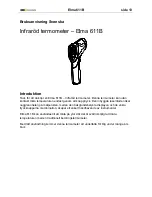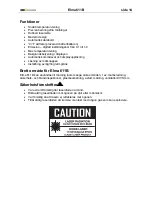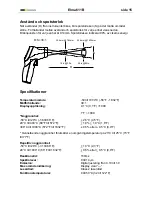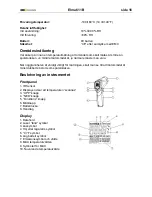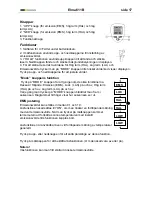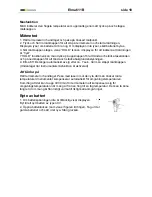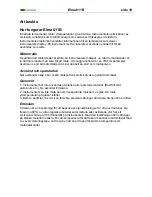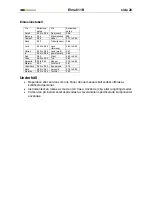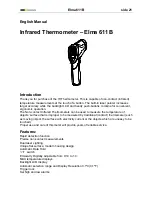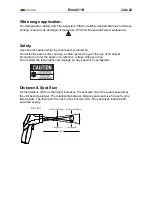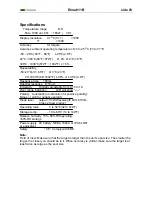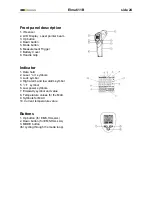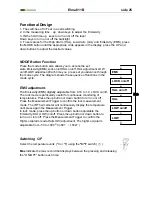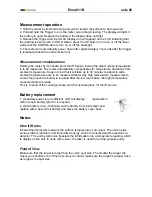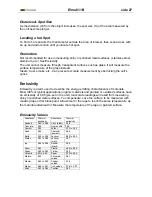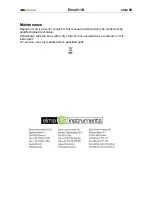
Elma 611B
side 27
Distance & Spot Size
As the distance (D) from the object increases, the spot size (S) of the area measured by
the unit becomes larger.
Locating a hot Spot
To find a hot spot aim the thermometer outside the area of interest, then scan across with
an up and down motion until you locate hot spot.
Reminders
Not recommended for use in measuring shiny or polished metal surfaces ( stainless steel,
aluminum, etc.).See Emissivity
The unit cannot measure through transparent surfaces such as glass. It will measure the
surface temperature of the glass instead.
Steam, dust, smoke, etc., Can prevent accurate measurement by obstructing the unit’s
optics.
Emissivity
Emissivity is a term used to describe the energy-emitting characteristics of materials.
Most (90% of typical applications) organic materials and painted or oxidized surfaces have
an emissivity of 0.95 (pre-set in the unit). Inaccurate readings will result from measuring
shiny or polished metal surfaces. To compensate, cove the surface to be measured with
masking tape or flat black paint. Allow time for the tape to reach the same temperature as
the material underneath it. Measure the temperature of the tape or painted surface.
Emissivity Values
Substance Thermal
emissivity
Substance Thermal
emissivity
Asphalt
0.90 to 0.98
Cloth (black)
0.98
Concrete
0.94
Human skin 0.98
Cement
0.96
Lather
0.75 to 0.80
Sand
0.90
Charcoal
(powder)
0.96
Earth
0.92 to 0.96
Lacquer
0.80 to 0.95
Water
0.92 to 0.96
Lacquer
(matt)
0.97
Ice
0.96 to 0.98
Rubber
(black)
0.94
Snow
0.83
Plastic
0.85 to 0.95
Glass
0.90 to 0.95
Timber
0.90
Ceramic
0.90 to 0.94
Paper
0.70 to 0.94
Marble
0.94
Chromium
oxides
0.81
Plaster
0.80 to 0.90
Copper
oxides
0.78
Mortar
0.89 to 0.91
Iron oxides
0.78 to 0.82
Brick
0.93 to 0.96
Textiles
0.90
Содержание 611B
Страница 4: ......

